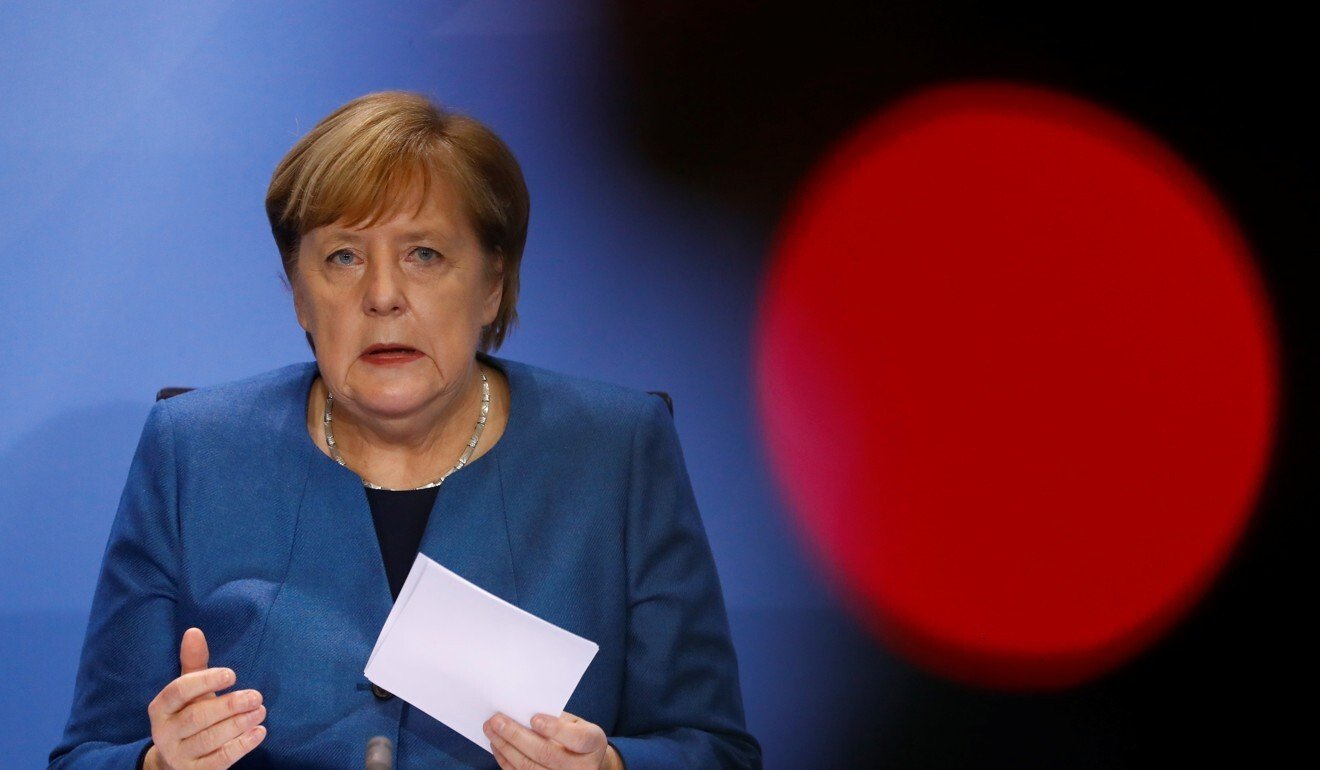
France orders new lockdown, Germany imposes toughest virus rules in months
Europe’s leaders imposed harsher pandemic measures as the coronavirus roars back across the continent. Spain, Italy, Britain, Greece and Portugal all reported record numbers of new cases on Wednesday.
French President Emmanuel Macron imposed a new nationwide lockdown for the next month, clamping down on movement as the rapid spread of the coronavirus overwhelms health services.
Meanwhile, German Chancellor Angela Merkel imposed a one-month partial shutdown starting on Monday, the toughest restrictions in the country since the end of a lockdown in the spring.
European leaders have been forced to relent and revive strict curbs, which hammered economies in the second quarter, as contagion rates soar and hospitals come under strain.
France’s shutdown of bars, restaurants, non-essential retailers and other activities will start on Friday, and comes less than a week after the country expanded a curfew to about two-thirds of the population in a bid to regain control of the pandemic.
Infections and hospitalisations are rising at such a pace that avoiding tighter measures is no longer possible, according to health care officials.
“The virus is circulating in France at a speed that even the most pessimistic forecast didn’t foresee,” Macron said in an address televised nationally on Wednesday evening. “The measures we’ve taken have turned out to be insufficient to counter a wave that’s affecting all Europe.”
France needs a “brutal brake on infections”, the president said, adding that the country could have 400,000 deaths in months if nothing is done. He said intensive-care facilities will have 9,000 patients – close to capacity – by mid-November, based on current trends.
The French leader opened the prospect of easing some curbs if there is an improvement in two weeks. The goal of the measures is to lower daily cases to 5,000 – a far cry from current rates. French authorities last week reported four consecutive days of record infections, including more than 52,000 on Sunday.
In Germany, strict new rules will see bars and restaurants closed as Europe’s largest economy attempts to regain control of the rapid spread of the coronavirus.
The one-month partial shutdown, which will go into effect on Monday, is designed to keep most businesses operating, Merkel said on Wednesday after tense talks with the leaders of the country’s 16 states. Officials will gather again in two weeks to assess the impact of the measures.
“We don’t want to fall into a national health emergency,” Merkel said at a press conference in Berlin, adding that hospitals could be overwhelmed within weeks if trends continue.
Merkel, who had vowed to avoid a repeat of the curbs that hammered the economy in the second quarter, had struggled to forge a consensus in recent weeks, and political tensions were high before the meeting, which was moved forward by two days in a sign of increased urgency.

With the public weary of pandemic measures and protests increasing, the government sought to ease pressure by making up to €10 billion (US$11.7 billion) in aid available for companies affected by the measures, including reimbursing as much as 75 per cent of lost sales.
The latest steps are less severe than the spring lockdown. Many shops will be able to stay open along with schools and company cafeterias. Germany’s professional soccer league will be able to play games, but fans will not be allowed in stadiums.
Elsewhere in Europe, Spain said 9,303 new coronavirus cases were detected over the past day, the highest number registered during the course of the pandemic. The number of deaths in the past seven days rose to 761, compared with 746 reported on Tuesday, the Spanish health ministry said on its website.
Greece reported 1,547 new coronavirus cases on Wednesday, the highest daily increase since the beginning of the pandemic and a second straight record day bringing the total to 34,229. The country recorded 10 more deaths from the virus in the past 24 hours, with the total number of dead now at 603.
Italy’s new coronavirus cases jumped 14 per cent on Wednesday to a record 24,991 as hospitalisations climbed to the highest since early May. There were 205 fatalities linked to Covid-19, while hospitalised patients rose by 1,151 to 16,517.
Portugal reported its biggest daily increase in confirmed virus cases since the start of the outbreak. There were 3,960 new cases in a day, more than the previous record of 3,669 reported on Saturday, taking the total to 128,392.











